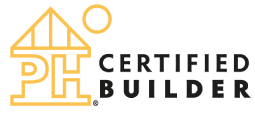Contracts without a fixed price, part 1
Cost Plus, with or without GMP, also known as Open Book
Cost Plus with No Gross Max Price (GMP)
Cost Plus with No Gross Max Price (GMP), commonly called "Cost Plus," is a contract method with no fixed price. Essentially, the builder is saying: "I'll build your house, give you every option you want, and you (the owner) agree to pay for the material and labor cost PLUS a fee. The fee embodies the contractor's profit and overhead. The contract should specify which project costs will be charged and what will not. For instance, if your house is wood-framed, you would expect to pay for the labor and framing material to build the walls. These are direct costs and are easy to understand. But you may not expect to see and pay for indirect costs such as the builder's supervision to manage the framer and coordinate with other trades.
Direct costs are the easiest to understand since they are the materials and trade labor that go directly into your home. Indirect costs are those items necessary for the job but are not directly installed into your home, e.g., the builder's superintendent who manages the day-to-day activity, the cell phone the superintendent uses, and even the pickup and fuel used by the superintendent. You may also see insurance, trash haul-off, portable bathrooms, and temporary utilities. These are typical indirect costs you may see, as well as other project and location-dependent items.
Cost Plus with a GMP
This contract method is essentially the same as Cost Plus with no GMP, but it includes an upper limit of costs called "Gross Max Price." If the total project costs exceed the GMP, the General contractor will typically have to absorb those costs beyond the GMP that are not included in a Change Order, which adds a bit of protection to the owner. The compromise is that if there is a GMP, the management fee is typically higher as the contractor risk is higher.
Contract Overview
Cost Plus contracts, either with a GMP or without a GMP, are often referred to as “Open Book” in the residential world. So, going forward, we’ll exclusively use the term “Open Book.” If you want to know the actual costs for everything in your project and if you are comfortable adding a little complexity to save money, then Open Book may be a good option for you. The owner must be willing to be actively involved in the contract, the budget, and reviewing construction documents every month for an Open Book contract to work well. A well-coordinated Open Book contract can save the owner a lot of money. For instance, if the contractor can save money by finding a better material price or using labor-saving strategies on a Fixed Price contract, those savings revert to the contractor. With an Open Book contract, those savings are the owner's savings. However, the same holds with cost overrun. On a Fixed Price contract, the contractor pays the cost overruns (unless there is a signed change order), while on an Open Book, those overruns are paid by the owner. However, the owner does have protection from arbitrary cost overruns with Open Book.
A common misconception is that owners can be charged for whatever the builder wants, including rework. This is not the case if you have a proper contract. The builder must perform to the plans and specifications. If it's not built per the plans and specifications, the owner shouldn't have to pay for that work unless there is a signed change order. Additionally, an owner shouldn't pay for any rework related to fixing mistakes or poor quality. Make sure a clause is in your contract that addresses rework. Mistakes happen, and the builder should ensure they are corrected.
Open Book Contract Elements
The Open Book contract transfers some of the project risks from the contractor to the owner. This risk is in the form of cost, and therefore, the owner should be charged a lower fee as the contractor has less risk. To manage expectations on both sides of an Open Book project, it is essential that the contract contain a listing of all direct and indirect costs as well as a detailed budget.
Indirect costs are essential to the project and should be paid by the owner. The project cannot be completed without dumpsters, portable toilets, etc. But owners typically balk when they start seeing contractor supervision, cell phones, and vehicle costs in the budget. Understand that all indirect costs are also included in a Fixed Price contract, you don't see them, and you don't get any costs that may be saved. With Open Book, not only does the owner see and approve the costs monthly, but they can also help manage them. The contract should list all expected indirect costs to manage expectations for both sides. The project may have a full-time superintendent assigned, while a project manager is assigned only half-time. These two positions have different costs, and the billing rate should be established for each. Remember that the labor billing rate is not the same as the individual is actually being paid. The billing rate includes Worker's Comp, insurance, payroll taxes, etc. These numbers are private; an owner should not expect the contractor to share them. As we've mentioned, you may also see cell phone, vehicle, and fuel costs; you may even see other costs such as computer/technology, printing, office supplies, etc. Don't be alarmed, but have an up-front discussion with your contractor to ensure you understand all costs.
The contract should have a fully developed budget as well. A good contractor will have every cost entered in the budget and labeled as known, estimated, or an allowance. This budget is the starting point for the project. Sometimes, owners and contractors alike think that because it is an Open Book, Change Orders are not needed. But, this is incorrect and will lead you to many troubles. The contract should have a detailed scope of work and reference all current project plans and specifications. Also, the contract should contain a detailed budget as an exhibit. If any scope of work is changed or added, you must execute a change order, even if it's a no-cost change. If it's not in writing, odds are it won't turn out the way you want. Also, there should be a way to document budget line-item transfers. If savings exist in one line item and an over-run in another, transferring funds between line items is customary. Just ensure it's done in writing so it's trackable. The budget should never change unless a Change Order or other signed instrument acknowledges and authorizes the change.
And then there is the Management Fee. The management fee includes not only the builder's profit but also their corporate overhead. Corporate overhead is different than indirect project costs. Corporate overhead on an Open Book project has corporate office rent, office support staff, office supplies, training, purchasing, accounting, etc. These items are part of the fee. Notably, the management fee also includes the builder's gross margin. The fee differs from the overhead & profit (OH&P) numbers that you'll see on a Fixed Price contract, and they should be lower. This is because the Fixed Price OH&P includes many of the project's indirect costs that are billed separately. The fee is charged on all direct and indirect line items. But, the management fee is not charged on itself or taxed.
Next, we’ll go into shared savings and billing in Part 2 of the Open Book contract for a home building project.













